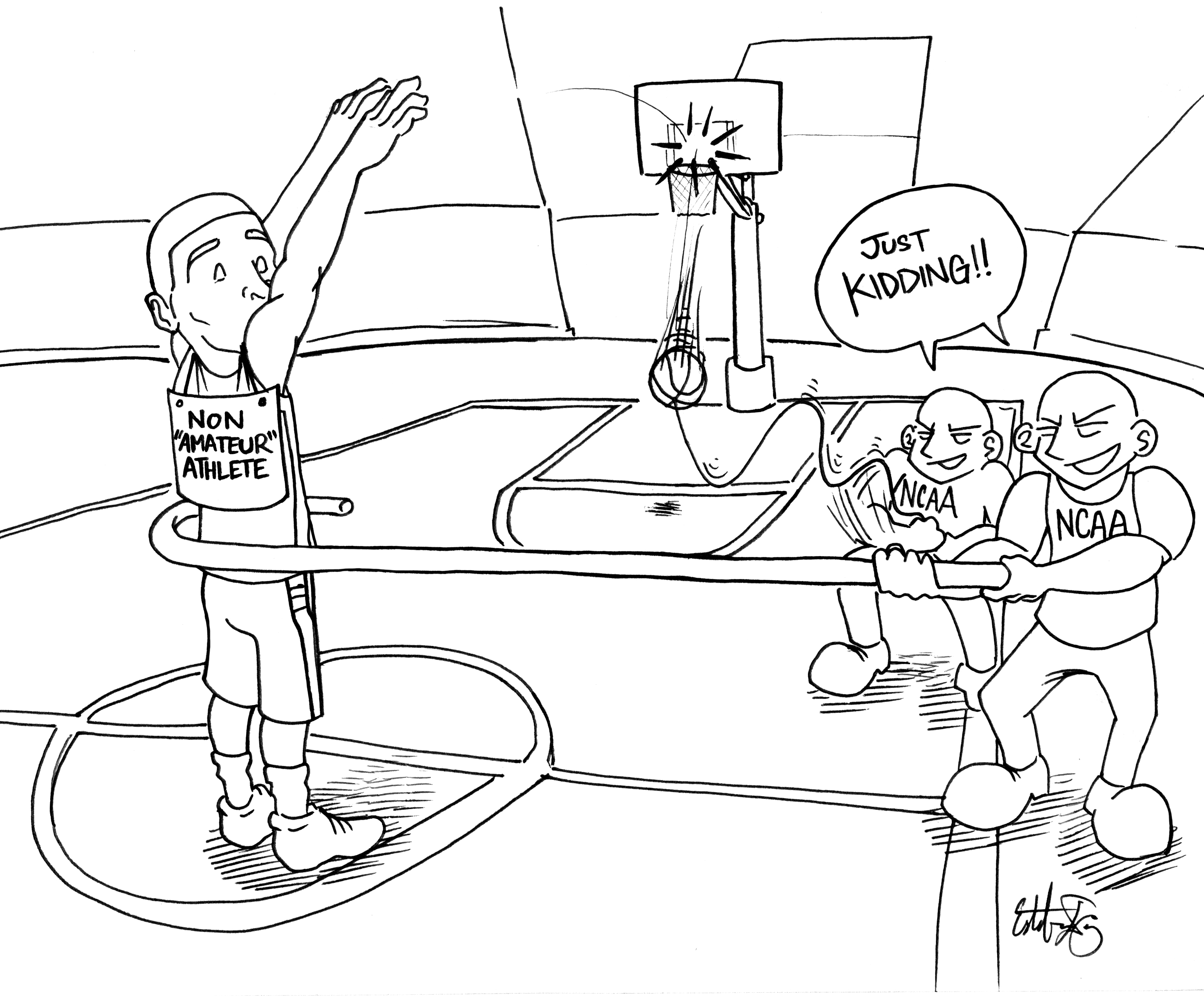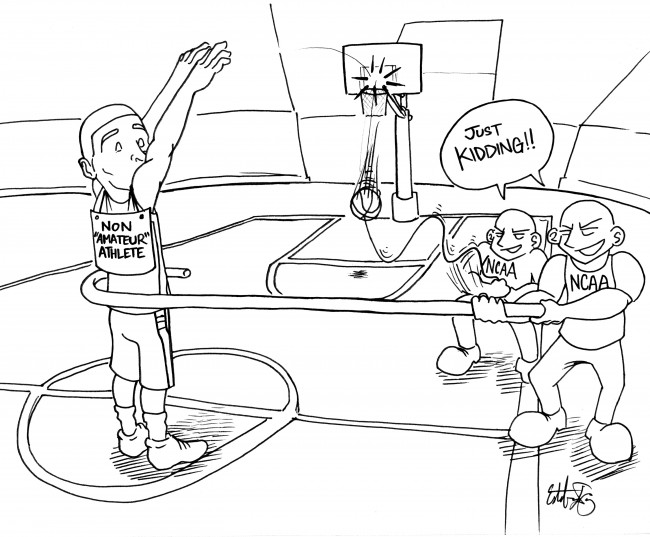Wednesday morning, Baylor was informed that freshman Perry Jones III was declared ineligible by the NCAA, leaving him unable to play in the Bears’ Big 12 tournament game six hours later.
Not surprisingly, given the circumstances, Oklahoma beat Baylor and knocked the Bears out of the tournament. Coach Scott Drew later said trying to get his team motivated to play was like convincing funeral attendees to run a marathon.
The NCAA declared Jones ineligible because of three loans Jones’ mother received from his Amateur Athletic Union (AAU) club basketball coach while Jones was in high school. In interviews with Baylor and the NCAA, Jones said he had no knowledge of these loans at the time they were made.
Jones’ mother repaid the loans in a “timely fashion.”
Jones also received funds from that coach to travel to San Diego and see a preseason professional football game. The loans and travel funds totaled roughly $4,100.
While Baylor and Jones’ mother have not denied the causes of the NCAA’s actions, they question the timing of the decision as well as the ruling itself considering recent events in college sports.
In a release issued 50 minutes before Wednesday’s game, Baylor expressed its disappointment in the decision and vowed to appeal for Jones’ reinstatement.
“This outcome appears to be inconsistent with other recent, widely discussed NCAA decisions,” Baylor athletics director Ian McCaw said.
McCaw would not comment further, but it is likely that the “widely discussed NCAA decisions” revolved around Ohio State’s and Auburn’s actions last year.
Ohio State football players, including quarterback Terrelle Pryor, running back Dan Herron and receiver DeVier Posey, were suspended for the first five games of next season because of improper benefits received during last season. Controversy arose, however, when they were allowed to play in the Allstate Sugar Bowl even though the NCAA discovered their violations before the game.
Critics, like ESPN’s Pat Forde, felt the punishment was weak because the players could play in a very important Sugar Bowl game while serving their sentence as the team plays much weaker opponents in its first five games next year.
The other largely publicized event McCaw likely referenced featured Auburn quarterback Cam Newton’s father, who college football recruiters say asked universities for money in exchange for ensuring his son’s commitment to those schools. Former Mississippi State player Kenny Rogers told a Dallas radio station that Newton’s father wanted between $100,000 and $180,000 for Newton’s commitment to Mississippi State.
Because Newton said he had no knowledge of his father’s plans, Newton was never suspended by the NCAA.
In both of these situations, either players or players’ families committed wrongdoing. When the stakes were high and their teammates needed them the most, though, none of these players were sidelined.
Baylor basketball’s situation entering the Big 12 tournament was as important to Baylor as the Sugar Bowl was to Ohio State or the regular season football games were to Auburn.
The Bears were constantly on ESPN’s “bubble watch,” a list of teams likely to be the last selected for the NCAA tournament. The March 5 loss to Texas essentially ensured that Drew’s team would have to make the Big 12 tournament finals, if not win the tournament, to be deemed worthy of a spot in the NCAA tournament.
When the Bears needed every possible bit of talent on the floor for an unexpected run to the Big 12 tournament championship, the NCAA told Jones he could not play.
In response to Baylor’s disapproval of the NCAA’s ruling, the NCAA made its own statement Thursday.
The NCAA said it told Baylor about possible issues with Jones in January. It also said Baylor declared Jones ineligible on Monday before the tournament and applied for Jones’ reinstatement the same day.
The NCAA made a final request for information last Tuesday regarding Jones’ possible reinstatement, processed that information and returned with a decision Wednesday morning.
Finally, the NCAA said that because there was no money actually given or received by Newton or Newton’s father to any university, there were no similarities between Newton and Jones. It did not comment on Ohio State in relation to Jones.
The problem with the way the NCAA handled Jones is a lack of consistency.
It is true that being declared ineligible because of a loss of amateur status is different than breaking the rules while retaining amateur status like the Ohio State players. But both should still be subject to the proper punishment.
For Jones, the punishment was being disqualified. For Ohio State, it was also being disqualified. The timing was unfortunate in both instances, but as soon as a violation is proved, the consequences should be enacted.
In the Newton issue, Cam’s lack of knowledge about his father’s actions was enough to excuse him from punishment. Jones said he did not know about his mother’s loans, but the NCAA still stripped his amateur status.
All questions of judgment aside, the NCAA’s rules and enforcement of those rules should apply equally to everybody. When the facts were in, only one player in the aforementioned cases was benched before a significant game.
Bench them all in crunch time, or let them play. Those should have been the NCAA’s only two choices.







